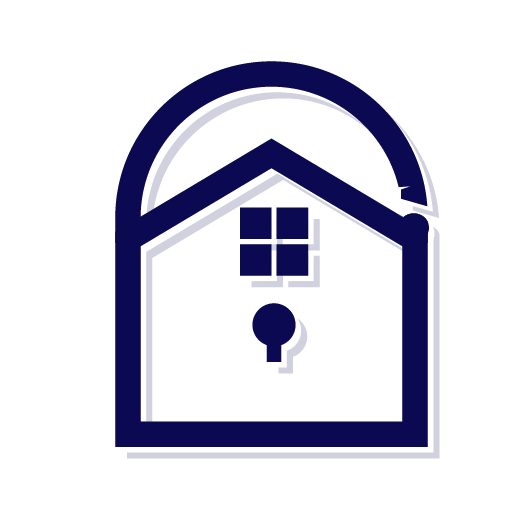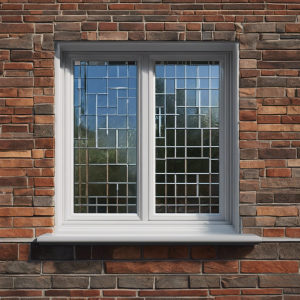As a landlord, you want to provide your tenants with as pleasant an experience as possible and you want to ensure that the property in which they live will be safe and that their possessions are protected from theft and damage.

Tenants are more likely to stay longer in rental properties if they feel safe and secure and that their belongings are not at risk of being damaged or stolen. The property rental industry is becoming a more popular choice for people in recent years.
Keeping a rental property safe can be difficult when there are so many things to consider, but it will be easier to keep your home secure with the right knowledge. In this article, we will discuss the key factors that can make or break the safety of your rental property. Here we will discuss are 8 tips to help you keep your rental property safe from burglars while keeping your tenants happy
1. Get a Security System
The first thing you should do is get a comprehensive security system. Although surveillance footage can be used against you in court, it’s better than nothing.
Some of them are remarkably affordable these days, so there’s no excuse not to protect your property (and your renters).
2. Review your Tenant’s Background
If you take a few minutes before signing a lease with a new tenant, it can save you some serious headache later. Talk to past landlords and coworkers of prospective tenants. Find out what kind of people they are and whether they’re good money managers.
If anything turns up that might scare you off, such as bankruptcy or other financial problems, run away quickly. Don’t let your eagerness for rental income get in your way; safety is more important than dollars when it comes to running a rental property.
3. Install Reasonable Security Measures
Getting a security system is essential, and probably one of your top priorities. Without it, there’s very little chance you’ll ever be able to recover any losses that occur due to burglary or vandalism.
Get at least a few sensors installed around your property—ideally on all exterior doors, windows and anywhere else that seems like a target for criminals. Make sure these sensors are connected directly into your home’s alarm system and/or monitored by a central monitoring station.
You don’t want alarms going off every time someone just opens their back door! A lot of people also recommend installing outdoor lights, as they can help dissuade would-be burglars.
4. Give Regular Communication
It may seem self-explanatory, but it’s actually surprising how many landlords are neglectful when it comes to communicating with their tenants. It’s often a good idea to meet with your tenants in person on a regular basis, especially if you live far away.
In an era where face-to-face conversations are becoming more and more uncommon, taking time out of your schedule to speak directly with your tenants will help both you and them understand each other better. If nothing else, meetings offer opportunities for property managers or owners to explain changes in policy or help answer any questions that come up over time.
Even if there’s no change in policy, a few moments of direct communication can strengthen tenant-landlord relationships significantly.
5. Develop a Routine
People tend to notice anomalies, so you need to make sure your property fits in with its surroundings. This means that your house needs an activity profile. For example, if there is a neighborhood bar two doors down, it’s only natural that patrons are more likely at night and on weekends.
If most of your neighbors work nine-to-five jobs and you don’t see much activity until mid-afternoon on weekdays, then you should keep that in mind when developing a daily routine.
Your activity profile will change as your tenants move in and out, but building a strong routine is important regardless of whether or not there are people living in your home.
6. Regularly Check On Changes in Tenants/Tenancies
If you’re using a third-party management company, you may feel like you can let them handle most tenant issues and rarely return to your properties. However, it’s imperative that you regularly check in on your properties, as well as all of your tenants.
If things change – if one tenant starts paying late or another moves out quickly without notifying their landlord – these seemingly minor details could add up and result in large losses later on.
7. Anticipate Issues Before They Happen
If you want your property to be as safe as possible, it’s essential that you avoid leaving unnecessary openings. When tenants are away, check their closets and cabinets. Be sure all windows and doors are locked tightly.
Don’t forget about hiding valuables—any lock can be picked with enough time and tools, so if there’s a chance something might get stolen, put it in a safety deposit box at your bank.
8. Be Proactive About Fending Off Criminal Activity
Being proactive about fending off criminal activity is key, says Robert Norton of ADT Security Services. Make sure you have up-to-date exterior lighting and proper signage indicating a security system is in place.
These measures will deter people looking to break into your property. It’s also important that you don’t make it easy for criminals to enter your home by using old locks and leaving windows or doors open at night.
Conclusion
As a landlord, you are responsible for protecting your investment by keeping your property safe from burglars. We hope these tips have helped you make your property a less attractive target for burglars. Thank you for reading, we are always excited when one of our posts is able to provide useful information on a topic like this!




Hey, I was a burglary detective for a few years. I had a suspect tell me he targeted houses where the trash cans were not picked up after trash day and the newspapers were left out front. He said that was his que that no one was home. After Reading your tips now I can secure my home.